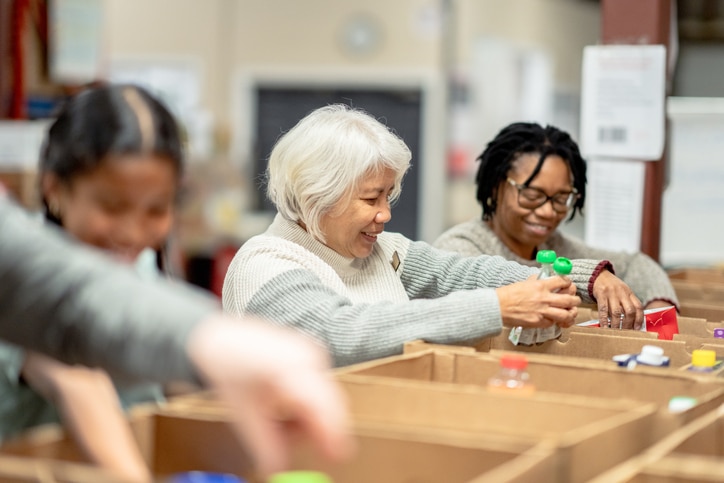The holiday season can be difficult for anyone who has lost a loved one, whether recently or otherwise, because it’s when their absence is most obvious — and painful.
“It’s the time of the year when we would have gotten together with our loved ones,” says Theresa Murphy, LCSW, director of behavioral health for the Methodist Family Medicine Residency Program. “We’re expected to be joyful during the holidays, but for some, this time of the year can be really painful.”
There isn’t a one-size-fits-all method to coping with such a complex emotional response that manifests differently for everyone. And while accepting the loss might get easier with time, missing those we’ve lost is something we’ll carry for the rest of our lives.
If grief makes the holidays less joyful than they should be, Murphy offers some coping techniques.
1. NAME YOUR PAIN
Ask yourself how and what you are feeling to identify the problem. Labeling your emotions could help you to determine what you need, while also avoiding casting blame on any innocent bystanders.
“Acknowledging what’s going on underneath the surface can help reduce the chances of you taking your frustrations out on others,” Murphy says. “You don’t want to end up yelling at your kids or getting upset at the dinner table from bottled-up emotions.”
By naming our feelings, we also may be less likely to take it out on ourselves by self-medicating or practicing other self-destructive vices.

2. SET BOUNDARIES
After determining your needs, it’s time to decide how you want to spend the holidays.
Does being around people bring you joy or stress? It’s okay to limit the people you want to be with or take a break from socializing entirely if that’s what you need, Murphy says.
Honor what your mind and body are telling you and decide what you can tolerate. Your supportive friends and family will understand if you aren’t in the holiday spirit.

3. MAKE A CONNECTION
If you can handle being around anyone, finding someone to connect with may help process your own emotions. Odds are someone you know is struggling to fill the same void you are.
The most painful thoughts are easier to battle with others around who have also experienced those feelings. Reach out to a family member, a close friend, or a trained professional to help release the overwhelming feelings of grief.
“If talking to a friend or family member doesn’t feel right for you, reach out to a counselor, therapist, primary care physician, or a support group instead,” Murphy says. “Please don’t be afraid to use these resources. They are there to help you carry your emotional burdens, so you don’t have to carry them alone.”

4. HELP SOMEONE ELSE
Helping someone else in need can be a transformative way to bring joy back into our lives.
Make it a goal to put a smile on someone else’s face this season. Volunteer to serve the homeless, donate a gift you would have given to someone you lost, or send a text message to a friend or family member in need.
“Grief turns us inward, while compassion turns us outward,” Murphy says. “Doing something nice for someone else helps reduce stress and anxiety in our lives.”

5. CARE FOR YOURSELF
When grief is our main concern, we often neglect our health, and that means skimping on sleep and nutrition.
“Lack of sleep and poor eating habits can encourage depression, anxiety, and various chronic health problems,” Murphy says. “If you need assistance navigating through your grieving process, please reach out to a physician or clinical therapist to help.”

6. HONOR LIVES LOST
The memories of those we lost can lighten the heaviest burden and the darkest hours.
One way to honor lost loved ones during the holidays is to light a candle in their memory. Choose a candle scent that reminds you of them so every time you start to miss them, you can light this type of candle in their memory.
Or consider writing a letter to your loved one saying everything you wish you could tell them if they were here today. Putting your thoughts to paper can help start the healing.
“There isn’t a wrong way to grieve or a time frame for it. Grief is a constant, evolving process,” Murphy says. “Hopefully with time, the grieving process will become easier, and we’ll remember the time we had with our loved ones as a gift.”






